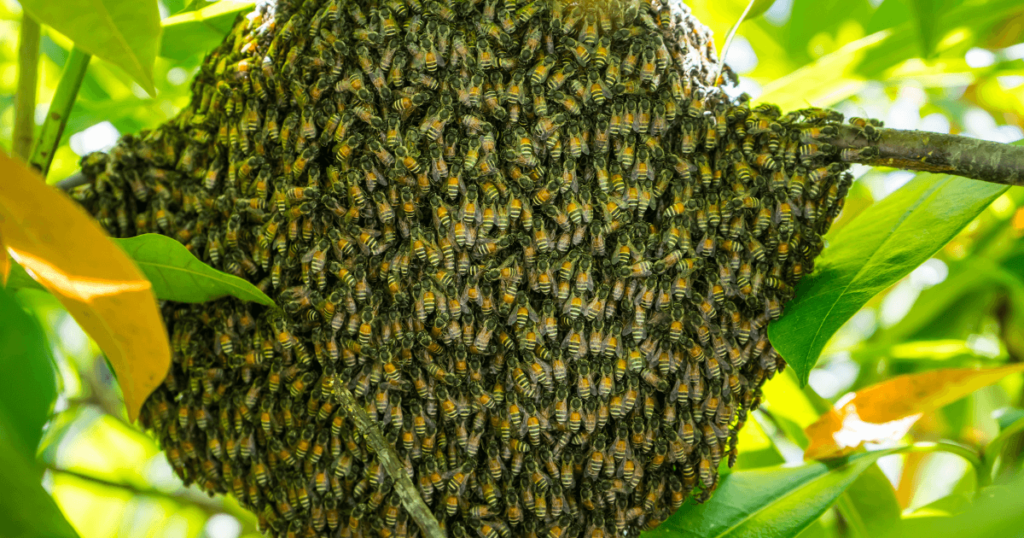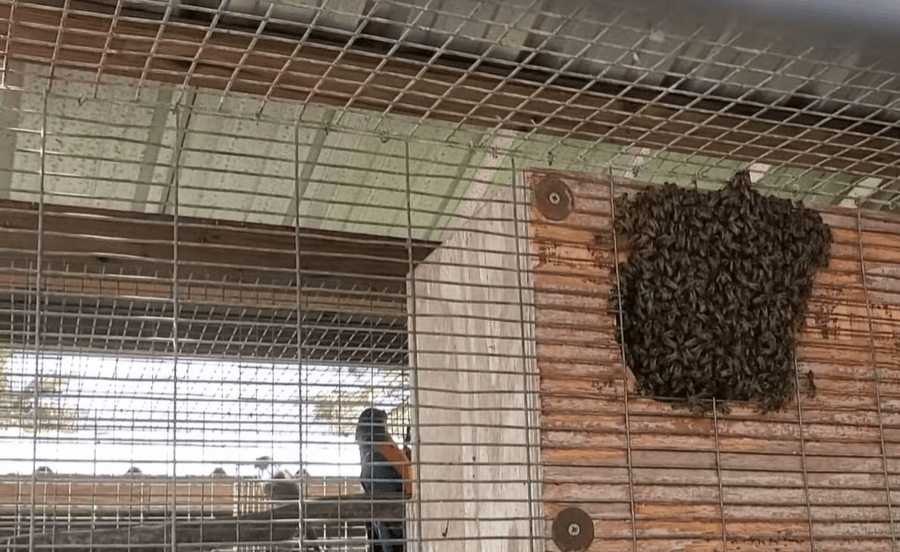Introduction:
Protecting birds from the aggressive behaviour of killer honey bees is of utmost importance for bird farmers and enthusiasts. These hybrid bees, also known as Africanized honey bees, pose a significant threat to bird populations when they invade nests or hives. In this comprehensive guide, we will explore natural methods to deter killer honey bees, safeguarding the well-being of birds. By implementing these strategies and incorporating specific plant-based solutions, you can create a bee-resistant environment in your garden. Let’s delve into effective techniques to protect birds and ensure a harmonious coexistence with these garden pests.

Table of Contents
Understanding the Threat Posed by Killer Honey Bees:
Killer honey bees, often referred to as Africanized honey bees, are the result of crossbreeding between African honey bees and European honey bees. They are known for their aggressive nature and tendency to attack perceived threats in large numbers. When these bees infiltrate bird nests or hives, they put the bird population at risk, leading to injuries or fatalities.

The Importance of Natural Methods in Bee Deterrence:
When dealing with killer honey bees, it is crucial to prioritize natural and environmentally friendly solutions. Chemical pesticides can have detrimental effects on birds, plants, and the overall ecosystem. Therefore, we will focus on natural methods to repel these bees and protect birds effectively
Effective Strategies to Deter Killer Honey Bees:
Homemade Vinegar Solution:
Creating a homemade vinegar solution is a powerful tool for bee deterrence. The mixture of equal parts water and vinegar, when sprayed in bee-prone areas or directly onto bee nests during nighttime, can effectively repel killer honey bees.

Utilize Cucumber:
Bees and wasps are not fond of the bitterness found in cucumber peels. Planting cucumber plants or placing peels strategically around your garden can deter these pests effectively. Cucumbers thrive in warm weather conditions with sufficient moisture, making them an excellent addition to your garden.

Harness the Power of Basil:
Basil acts as a natural bee repellent with its aromatic scent. Planting basil in sunny areas of your garden helps deter bees and wasps. The heat-loving basil plants require 6-8 hours of full sunlight daily for optimal growth and effectiveness as a bee deterrent.

Geraniums:
Geraniums, particularly red varieties, repel bees due to their inability to perceive the colour red. These flowers contain little to no pollen and produce a scent that bees find unattractive. Geraniums prefer sunlit areas and can be moved indoors during colder seasons, allowing for year-round bee deterrence.

Wormwood:
With its pungent scent and insecticidal properties, wormwood acts as a natural deterrent for bees and wasps. Planting wormwood in well-drained soil and providing it with direct sunlight helps create an environment that bees and wasps avoid. Caution should be exercised to avoid the negative effects of wormwood on nearby plants.

Mint:
Mint’s pleasant aroma to humans is repulsive to stinging pests like bees and wasps. Planting mint in your garden helps repel bees and create a bee-resistant environment. Mint can thrive in partial shade but requires regular monitoring to prevent it from overtaking other plants. By strategically placing mint in your garden, you can naturally deter killer honey bees.

Eucalyptus:
Bees and wasps find the fragrance of eucalyptus unpleasant, making it an effective natural deterrent. Planting eucalyptus in containers or directly in the garden creates an environment that bees and wasps tend to avoid. These plants are drought-tolerant and require a good amount of sunlight to thrive.

Marigolds:
Marigolds not only add vibrant colours to your garden but also serve as natural bee repellents. While they may not deter nectar-seeking honeybees, marigolds are unattractive to wasps. Their distinctive scent keeps these pests at bay. Plant marigolds in well-drained soil and provide them with adequate sunlight for optimal growth and bee deterrence.

Citronella:
Known for its ability to repel mosquitoes, citronella also discourages bees and wasps. Planting citronella in your garden or using citronella candles can create an environment that is less attractive to these pests. Citronella plants require at least six hours of sunlight per day and well-drained soil.

Pennyroyal:
Pennyroyal, with its mint-like scent, acts as a natural deterrent for bees and wasps. This small plant, reaching a height of 6-12 inches, is suitable for containers and can be placed strategically around your garden. Ensure that the pennyroyal receives regular watering to prevent it from drying out.

Pitcher Plants:
While most of the plants mentioned above repel bees, pitcher plants offer a unique solution by helping control bee populations. These carnivorous plants trap and ingest insects, including bees, for their nutrition. By planting pitcher plants, you can reduce the number of bees in your garden. However, caring for pitcher plants requires specific conditions, including rainwater or distilled water and full, direct sunlight.

By implementing these natural deterrents and incorporating bee-repellent plants into your garden, you can create an environment that is less attractive to killer honey bees. It is important to remember that these methods may not completely eliminate the presence of bees, but they can significantly reduce their impact on bird populations.
Summary:
Protecting birds from killer honey bees is essential for bird farmers and enthusiasts. Implementing natural deterrents and incorporating bee-repellent plants in your garden can help create a bee-resistant environment. Strategies such as using homemade vinegar solutions, planting cucumber, basil, geraniums, and other bee-repellent plants like wormwood, mint, and eucalyptus, can effectively deter killer honey bees. Additionally, marigolds, citronella, pennyroyal, and pitcher plants offer natural solutions to repel or control bee populations. By utilizing these natural methods, you can protect birds and promote a harmonious coe
